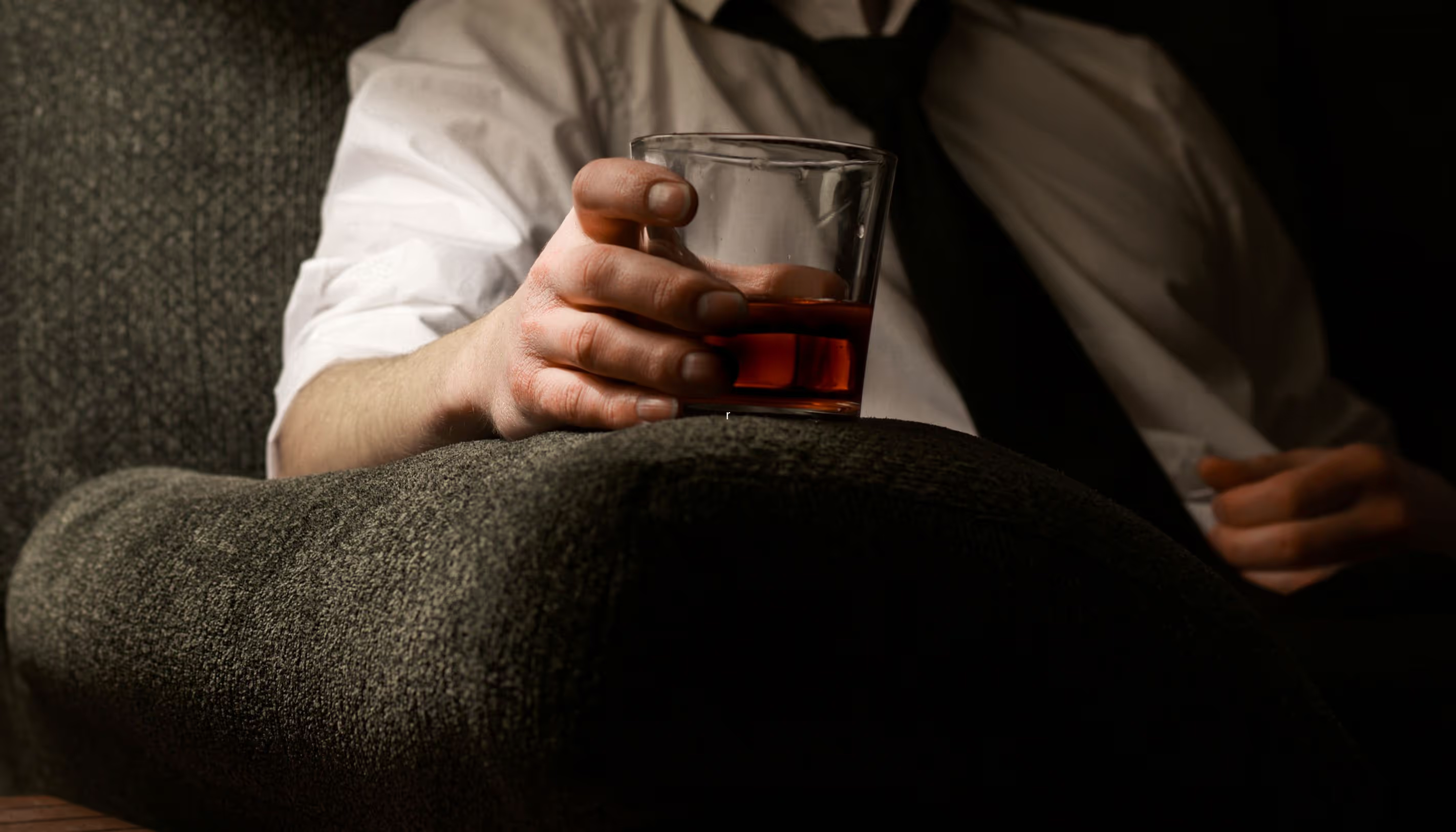From Shots To Shedding: The Connection Between Alcohol and Hair Loss

It’s morning time, and you’re getting ready for the day. You may be a little sluggish from the multiple drinks you consumed the night before. You unenthusiastically drag the comb through your hair and notice a lot of hair, too much hair, falling out. You think — Is this normal? Why am I losing so much hair? You may chalk it up to getting older, but could there be more to it?
Is there a connection between hair loss and alcohol? Are your drinking habits behind your hair loss? If you’re a chronic alcohol user, they could be. Consuming excess alcohol can lead to nutrient depletion and hormonal imbalances.
We will discuss the effects of alcohol on your body, how it can contribute to hair loss, and what you can do to help your hair and body grow healthy again.
Table of Contents
- Can Drinking Alcohol Cause You To Lose Your Hair?
- Alcoholism and Hair Loss: 5 Ways Alcohol Can Negatively Impact Your Hair
- Will My Hair Grow Back If I Stop Drinking Alcohol?
- Seek Alcohol Rehab at Dove Recovery To Help Achieve Sobriety and Optimize Your Health
Alcohol can have an abundance of negative impacts on the body. Rather than being a direct effect of alcoholism, hair loss can be attributed to multiple side effects of alcohol, such as nutritional deficiencies and hormonal imbalances.
If you feel that your alcohol consumption is contributing to your hair loss, it may be time to seek help. When hair loss occurs alongside excess drinking, it may indicate an alcohol use disorder. Contact Dove Recovery to start your healing process today.

#1: Nutritional Deficiencies
Nutrients play an important role in healthy hair growth. Alcohol can reduce nutrient absorption and usage within the body. If your body has nutritional deficiencies due to chronic alcohol use, you may no longer be receiving the vital nutrients needed to support well-nourished hair.
Common nutritional deficiencies that may contribute to hair loss are:
- Iron
- Zinc and copper
- Protein
- Vitamin D
- Vitamin B
#2: Hormone Imbalances
Hormones play a key role in hair health. Alcohol can throw off the hypothalamic-pituitary-adrenal axis, which the brain uses to control your hormones. Excessive alcohol consumption can create hormonal imbalances, causing a multitude of negative effects. When the thyroid, prolactin, and cortisol hormones are impacted by alcohol, there may be harmful consequences to your hair.
Thyroid imbalances can affect your hair by:
- Increasing the number of hair follicles in the telogen phase, which means an escalation in hair loss.
- Decreasing hair density.
- Changing hair to a brittle, dry, or coarse texture.
Elevation in prolactin promotes hair loss by:
- Accelerating transitions between hair cycle phases, limiting hair growth, and exacerbating hair shedding.
- Triggering apoptosis, which is a reduction in the crucial cells that are responsible for producing new hair shafts.
Spikes in cortisol, a stress hormone, can cause hair loss due to:
- Disruption in cell communication in the hair follicle. The lack of connection prematurely pushes hair into the resting phase, which leads to shedding instead of finishing out the cycle with the growth phase.
Are you ready to step away from alcohol and step into a healthier life? Abstaining from alcohol can help you regulate hormones, reduce hair loss, and improve your overall health. Dove Recovery is here to help you in your commitment to wellness.
.avif)
#3: Dehydration
Staying well-hydrated is essential for maintaining your body's health. Alcohol’s diuretic effect does the exact opposite by increasing the release of fluids and electrolytes through excessive urination.
Dehydration can cause the hair to become brittle and weak. The lack of water decreases blood flow to the scalp, which is vital in promoting regrowth and limiting shedding.
Dehydration may cause a decline in hair health due to:
- Not having enough water in the body to bring essential nutrients to the hair.
- Decreased blood flow to the scalp, which may hinder hair growth.
- The hair itself becoming dehydrated from not receiving enough water.
#4: Sleep Disturbances
Alcohol may initially induce sleep, but once you fall asleep, you’re likely to wake frequently and experience insomnia. Since healthy sleep patterns are important for hair growth, the decreased quality and duration of rest after alcohol consumption can contribute to hair loss.
#5: Oxidative Stress
Alcohol causes an increase in free radicals in the body, leading to oxidative stress. Antioxidants protect cells from damage, but if there is an excessive amount of free radicals, antioxidants become overwhelmed and unable to prevent the damage.
Hair follicle growth and function can be disrupted due to the increase in free radicals. Avoiding triggers such as alcohol to lower the chances of oxidative stress may significantly help reduce hair loss.
Yes, it can. Maintaining healthy habits can result in your hair growing back and reducing the amount of shedding that leads to noticeable hair loss. Abstaining from alcohol will allow your body to better absorb and metabolize the nutrients that are required for healthy hair.
Healthier hair is one of the many benefits of becoming sober. If you’re ready to take the next step toward sobriety, Dove Recovery offers uplifting support, guidance, and experience to help you on your journey to healing.

What To Do After Quitting Drinking Alcohol To Maximize Hair Growth
Quitting drinking is just the beginning of maximizing hair growth and health. Along with avoiding alcohol, there are numerous healthy habits that can promote hair growth.
A few healthy habits that can help maximize hair growth are:
- Eating a balanced diet.
- Vitamins provide hair follicles with essential nutrients
- Minerals support hair growth and cell turnover
- Proteins ensure that hair has the building blocks to create new hair
- Staying hydrated to ensure the absorption of nutrients and help prevent the hair from becoming brittle and breaking.
- Managing stress to avoid disrupting the hair growth cycle.
- Physical activity
- Relaxation techniques
- Regular sleep
- Meditation or Yoga
- Taking hair growth supplements to help you get the nutrients that you are lacking from your everyday diet.
- Vitamin D
- Biotin
- Collagen
- Zinc
- Iron
- Omega-3 fatty acids
Now that you have a better understanding of the connection between hair loss and alcohol, you have another reason to seek out a rehab facility. At Dove Recovery, your health, wellness, and recovery are our priority. Our outpatient treatment programs are customized to fit each individual's needs.
We are here to help guide you to a life free of addiction and full of hope, strength, and purpose. Let our expert team care for you and support you as you begin your journey to a healthier life.
Give us a call today to start creating a treatment plan that works for you.
.avif)
